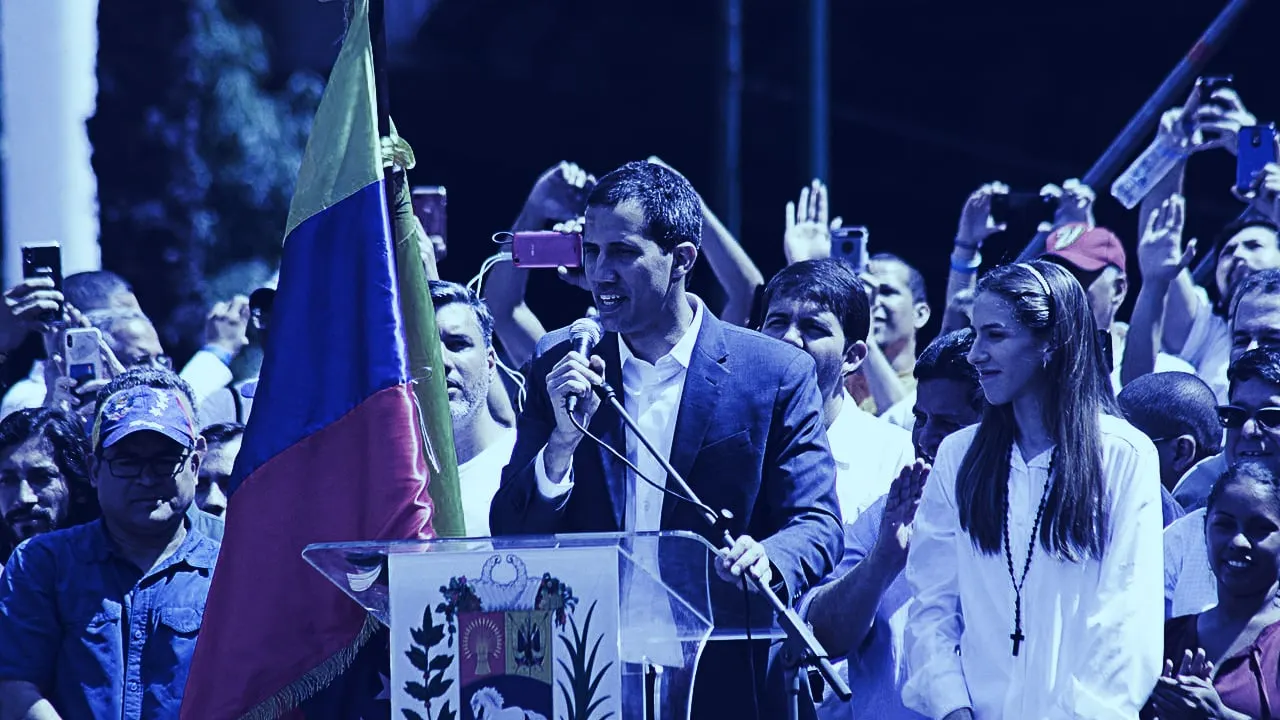We do the research, you get the alpha!
President of Venezuela, Nicolás Maduro, has confirmed reports regarding his country’s plans to develop payment methods based on Bitcoin, as well as stockpiling cryptocurrencies as part of its international reserves.
And Juan Guaidó, leader of the Venezuelan opposition and “acting president” as recognized by more than 50 of the 195 countries in the world, is none too pleased.
"The regime's use of cryptocurrency shows desperation," Guaidó said in a press conference in response to Maduro’s admission, according to Bloomberg. "To resort to that kind of subterfuge emphasizes the economic crisis the regime is going through," he said.
It’s a criticism that is more than a little curious, given previous public statements from Guaidó which expressed his affinity for Bitcoin and other cryptocurrencies. Way back in 2014, in fact, well before many other leading Latin American figures joined the fray, Guaidó was tweeting about Bitcoin and the promise it held for Venezuelans.
And a more recent tweet from Guaidó, from December 2017, even criticized Venezuela’s state-backed crypto, the petro, for not being a real cryptocurrency. He argued that, unlike a cryptocurrency, the petro is backed by oil, as opposed to its users’ trust.
Now, in an ironic twist, Maduro’s pivot to a real cryptocurrency in Bitcoin, is nothing more than an act of desperate “subterfuge," in Guaidó’s view.
In truth, however, Guaidó’s criticism likely has much more to do with politics than with Bitcoin’s technology or monetary policy.
Guaidó, after all, is a staunch supporter of the sanctions that the United States, under President Donald Trump, has imposed against Maduro’s government. And Maduro has made no bones about his reasons for Venezuela’s central bank holding reserves in Bitcoin and Ethereum.
“Donald Trump and his sanctions are blocking Venezuela from carrying out transactions in any of the world’s banks,” Maduro said during a press conference yesterday. “There’s other formulas to pay, and it’s what we’re using, because our payment system works perfectly in China and Russia.”
Guaidó is one of the most prominent leaders of the Venezuelan opposition, and one of the most influential ones from a geopolitical level. During his (disputed) term as president, he managed to harden the sanctions against Venezuela as a strategy to overthrow Maduro.
But it hasn’t worked, and Guaidó has since lost much of the support he initially gained within the country.
And now, Maduro has pulled his Bitcoin trump card: "Venezuela is working with the world of cryptocurrencies as free national and international payments system," the president confirmed yesterday. “The finance minister and Venezuela’s central bank have new instruments which we will activate very soon so that everyone can do banking transactions, as well as national and international payments through the central bank’s accounts,” he said.
His comments would explain why the Bank of Venezuela, the largest bank in the country, recently enabled an option for its customers to register a cryptocurrency wallet directly linked to their bank accounts, as Decrypt previously reported.
With Bitcoin firmly entrenched in the world of politics, it’s possible that we may see presidents and world leaders from around the globe increasingly debate the issue—and that includes Venezuela’s two presidents.





